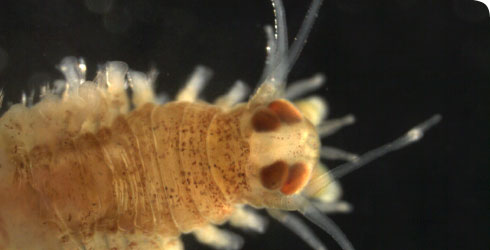Platynereis dumerilii
Platynereis dumerilii, a marine polychaetous annelid or ragworm.is considered a living fossil. Platynereis dumerilii lives in the same environment as its ancestors millions of years ago and still has many ancestral features. On of the most interesting ancient features this marine worm has retained is an eye like structure called an eyespot.
Eyespots are found in the larvae of marine ragworm and are simplest eyes that exist. They resemble the first eyes that developed in animal evolution and allow the larvae to navigate guided by light. Studying the eyespots of Platynereis dumerilii, larva is probably the closest scientists can get to figuring out what eyes looked like when they first evolved.
The preserved ancestral features of Platynereis dumerilii, make it useful for many areas of research, particularly developmental evolution. Platynereis dumerilii, is used for the comparison of segmentation between annelids and arthropods, because it comes closer to the putative ancestral morphology and style of development than other model annelids with indirect development.
The Platynereis dumerilii are also a good species to use for research as they can be continuously bred in the laboratory.
Species detail
P. dumerilii presents several advantageous features a model organism for scientific research
- It can be bred in the laboratory
- Exhibits an ancestral-type body plan
- Displays indirect development through a ciliated trochophora larva
- Produces several thousands of offspring in this singular act of spawning
-

Taxonomy
Get a further taxonomic description of Platynereis dumerilii.
-

Evolution
Find out what scientists have discovered about the eyes and swimming motion of Platynereis dumerilii.
-
Distribution
Discover where you are most likely to find Platynereis dumerilii and the types of environment it inhabits.
-

Biology
Find information about the size, life expectancy and breeding rituals of this tube-dwelling species.
-

Uses
Find out about the advantageous features of Platynereis dumerilii that make it a model organism for the lophotrochozoan group.
-

References
Get reference material regarding Platynereis dumerilii.
Images
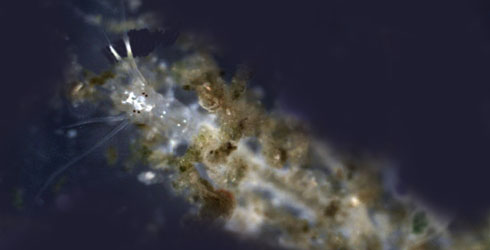
Platynereis dumerilii
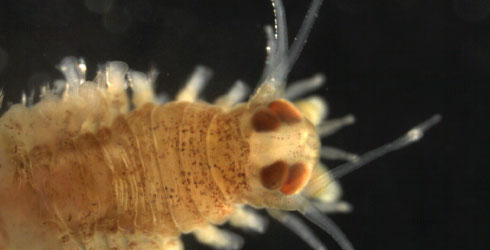
Mature Platynereis dumerilii.
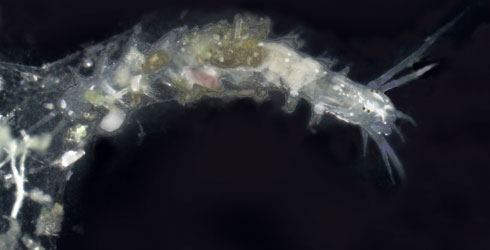
Platynereis dumerilii is a tube-dwelling species.
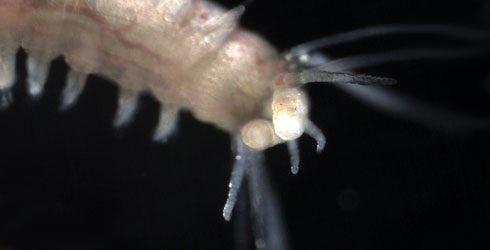
Platynereis dumerilii palps.
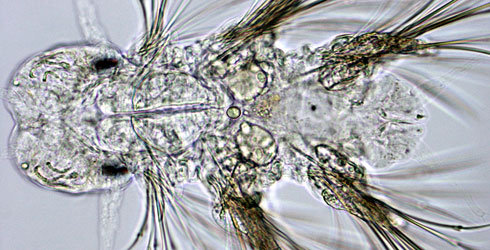
Platynereis dumerilii larvae.
About the author
Javier García-Alonso
Former Postgraduate Research Assistant, Trace Metal Research Group, Department of Zoology.
